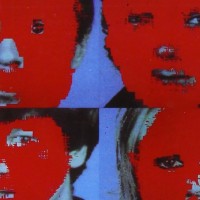If you believe the axiom that a good song ought to be about something, then a good songwriter might be defined as one who can get a point across in the most direct manner.
A different school of thought might suggest a different approach: by using allegory and metaphor, a good writer creates an opportunity to address more than one topic on any number of different levels.
Sure, you don’t want plain and boring. But taken to the extreme, too many images, phrases or obscure word choices might make it impossible for the listener to comprehend a song in any meaningful way, leading to the adage in songwriters’ circles that lyrics that are too mundane or too inscrutable can both be the equivalent of “singing the phonebook.”
Regardless, this hasn’t prevented songs that are pretty much incomprehensible on some level from capturing the public’s imagination over the years.
“MICHELLE,” THE BEATLES vs. “PSYCHO KILLER,” TALKING HEADS: One sure way of getting the lyrics to escape the listener is to write them in another language. French is widely considered “the language of love,’ so it shouldn’t be surprising that Paul McCartney sneaks it into this Beatles’ ballad. And he does it so smoothly; after all, Macca always had that certain savoir faire in his craftsmanship.
On the other hand, the Talking Heads’ signature song seems to just throw in a “Qu’est-ce que c’est?” with some “Fa-fa-fa-fuh” stuff during the chorus, which maybe just points out the consequences of not completing second semester French in your sophomore year more than anything else. C’est la vie. Or not.
Winner: Surprise upset — Talking Heads’ “Psycho Killer.” Secret weapon: the scattered French phrases in the bridge can be used as answers to the bonus questions on most GED exams.
“TUTTI FRUTTI,” LITTLE RICHARD vs. “HOOKED ON A FEELING,” BLUE SWEDE: “A wop bop a lula, a wop bam boom!” You don’t need any special skill to savvy this, especially with Little Richard’s over-the-top vocal delivery. In fact, they had to bring in someone to rewrite the rest of the lyrics to make them a little more under-the-radar. “Oh, rooty!” indeed.
On the other hand, I remember one of my high school teachers, normally a pretty hip guy, once tried to tell our class that the “ooga-chaka” opening of Blue Swede’s big hit from 1974 was a thinly veiled sexual reference, proof positive of how the entertainment industry was leading popular culture down the garden path. A conversation still remembered, which is more than can be said about the day’s lesson.
Winner: “Tutti Frutti.” A gal named Sue who knows just what to do always wins over a whole lotta ooga-chaka — whatever it means.
“WE DIDN’T START THE FIRE,” BILLY JOEL vs. “IT’S THE END OF THE WORLD AS WE KNOW IT (AND I FEEL FINE),” R.E.M.: Bob Dylan popularized this cataloging technique in “Subterranean Homesick Blues,” and eventually both R.E.M. and Billy Joel took a shot at updating it. Billy Joel actually arranges his seemingly random phrases into some sense of chronological order, almost like an almanac of 20th century news topics. Unfortunately, he ends on a down note, but avoids taking the blame for it by singing, “We didn’t start the fire; it was always burning.” Or, as young William might have said at his first music recital: Hey, I wasn’t playing with no matches, Maa! It was that crazy Jerry Lee kid who torched the pianna, not me!
R.E.M. takes a more abstract approach. For example, at one point they cite a list of celebrities with the initials L.B. (Lenny Bruce, Lester Bangs, and so on). So, what is that supposed to mean? But they shrug off providing any explanation at all with a nonchalant chorus of: “It’s the end of the world as we know it/And I feel fine.” Phooey: Alt-rock kings can get away with sooooo much.
Well, this doesn’t happen often, but sometimes a non-combatant just jumps into the ring, KOs the undeserving, and claims the prize. Winner: “I’ve Been Everywhere” by Hank Snow (and others). Originally written by Australian country singer Geoff Mack using Australian place names, it was thought the song might be more successful across the ocean if the locations were changed to ones found in the U.S. and Canada. So, Mack rewrote the song, using an atlas of North America as a reference book… which is as close to actually singing the phonebook as it gets.
- How David Bowie’s ‘The Next Day’ Stripped Away All of the Artifice - March 15, 2023
- Why Deep Purple’s ‘Who Do We Think We Are?’ Deserves Another Listen - January 11, 2023
- In Defense of the Often-Overlooked Mott the Hoople - November 10, 2022




